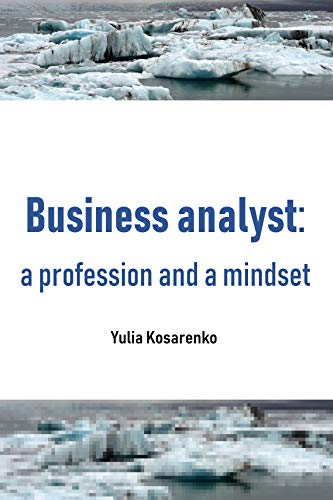Business analyst: a profession and a mindset

While business analysis tools and techniques are taught in many courses and detailed in books and articles, there is something else that is essential to our success – it is the business analyst mindset. We already know how important it is for BAs to lead with an Agile mindset; as outlined in the Agile Extension to the BABOK® Guide. But have you looked deeper into the human side of business problems?
The business analyst mindset is not a technique or a selection of tools. It is like a code of ethics: being passionate not only about doing things right, but about doing the right things. The business analyst mindset is about looking for a solution that makes sense as part of the big picture. It’s about solving business problems and driving changes that help the client, business or organization achieve their strategic goals. It’s about seeing beyond politics, individual points of view and departmental agendas. It’s about understanding your clients, users and stakeholders, recognizing their human traits and biases, and working with them to help bring about a positive change.

Increasing Your Personal Effectiveness
The business analyst mindset is about figuring out the right thing to do instead of following explicit directions. It is about questioning and analyzing with passion, about that innate drive to understand and to make things more efficient. It is about seeing what makes sense, even if you are the only one who can see it. It is about not being afraid to be different and stand out. A BA mindset embodies a set of values and principles, a philosophy and approaches to practicing business analysis. A Guide to the Business Analysis Body of Knowledge® (BABOK® Guide) covers this in sections 9. Underlying Competencies and 11.1.4 Underlying Competencies.
As an IIBA member, I’m excited to share with you what I refer to as the twelve principles of the business analysis professional mindset in my new book, “Business analyst: a profession and a mindset” which looks at the motivations, attitudes, rational and irrational factors that impact business problems.
- Focus on business – calibrate solutions to business goals
- Solve the right problem
- Question everything
- Lead and facilitate
- Analysis before synthesis; information before requirements
- Uncover gaps – do not cover them up
- Simplify until nothing can be removed
- Take responsibility for shared understanding of business requirements
- Accept and embrace business change
- Be part of the solution
- Expect human behavior from human beings
- Learn, adapt and thrive
In the BABOK® Guide we talk about the core competencies of behavioural characteristics focus on the skills and behaviours that allow a business analyst to gain the trust and respect of stakeholders. Chapter 9.2 Behavioural Characteristics explores ethics, personal accountability, trustworthiness, organization and time management, and adaptability to help BAs always act in an ethical manner to efficiently deliver quality results and demonstrate adaptability to changing needs and circumstances.
These 12 principles reinforce the importance of building successful relationships and communication patterns, taking accountability for facilitating consensus and addressing gaps, and guiding stakeholders to make analysis-based decisions. Putting emphasis on the business analyst mindset and fostering principles can become a foundation of building a successful business analysis practice in an organization.
If you would like to learn more, check out a series of articles about the business analyst mindset on my blog: https://why-change.com/category/business-analyst-mindset/
The book is available on Amazon as a PDF and paperback , and on the Kobo platform as digital reflowable edition (EPUB).
Share your feedback on the concept of the business analyst mindset and its principles at brand@iiba.org. For more great reading, check out IIBA’s members online library where you can find a wide selection of e-books on key business analysis topics. Not a member? Join today to get access to the online edition of BABOK® Guide, IIBA’s online library and much more!
About the Author
